A.R. Rahman’s music has a unique, instantly-appealing quality and the magic of his music stays with us for long. Over the years, he has contributed significantly through his music and for the same, was recently honoured with the Japanese Grand Fukuoka Prize 2016.
Rahman’s music is a true example of how music can surpass the barriers of language, culture and religion. The world we live in today is plagued with terrorism and unfortunately, certain religions and castes are stereotyped just by association. Rahman embraced Islam in his 20s and has been trying to develop a world that transcends the listeners to a peaceful place through his music.
Delhi Times spoke to the musician after he was awarded the Grand Fukuoka Prize and he spoke about the challenges that religions are being made to face today.
Here are a few excerpts from his interview:
He spoke about the changing times and how artists have the ability to heal people.
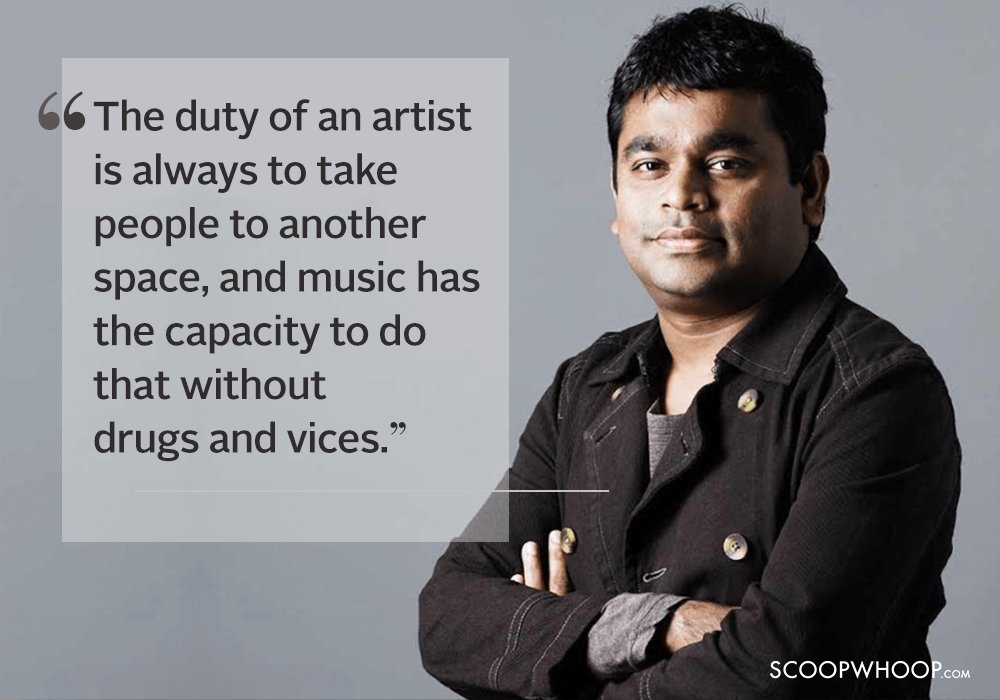
He mentioned that every few decades, a religion gets confronted with situations that are created by a few chaotic elements. He acknowledged that even if bad things happen, people should increase the number of their good deeds.
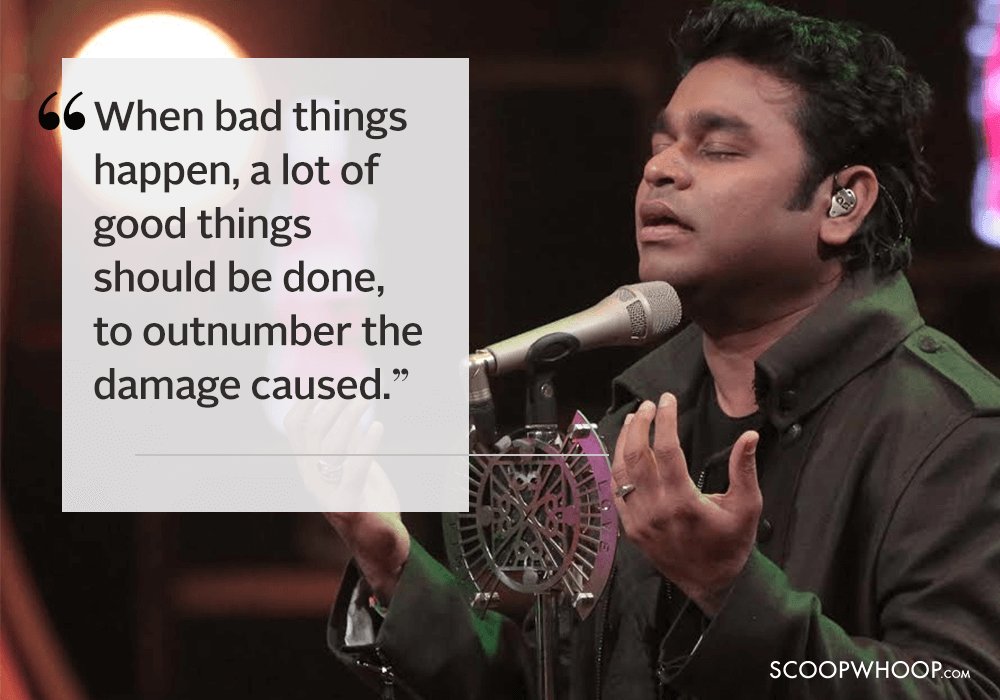
Rahman comes from a family of musicians & spoke about the influence that Sufism has had on his music.
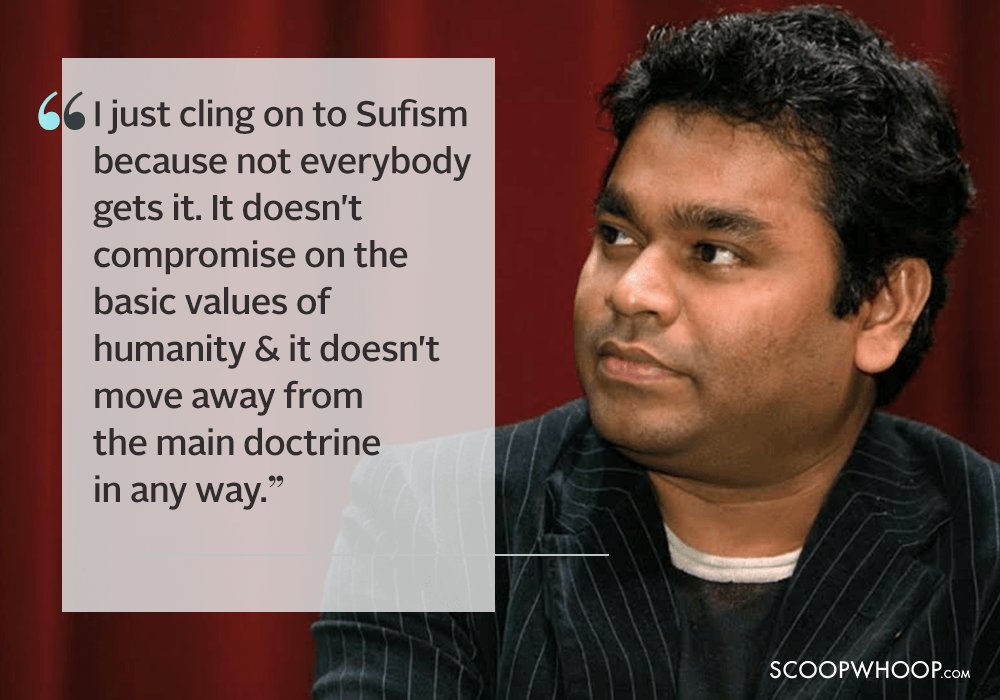
Sufism is much more than what people explain it to be. And through his music, Rahman tries to explain that.
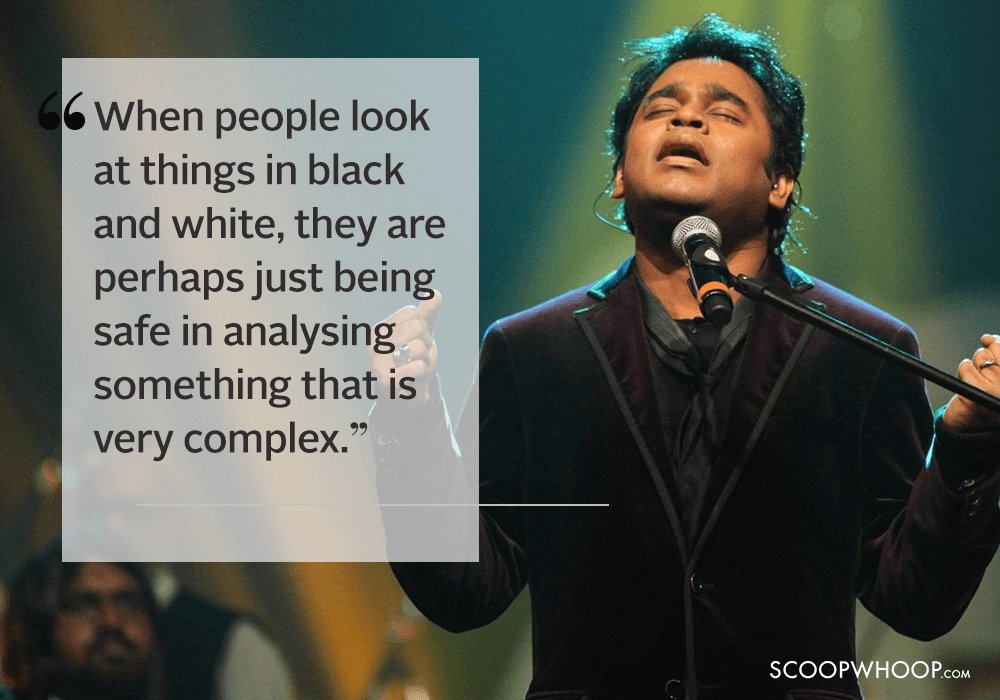
Rahman believes that music surpasses the bounds of religion and lifestyle.
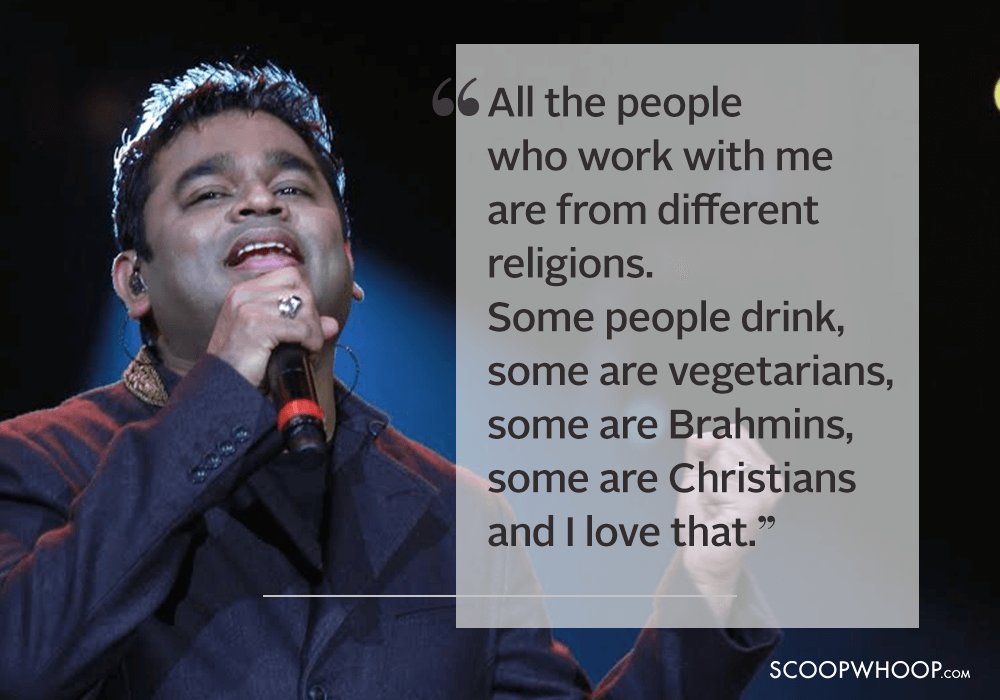
There’s a certain mystic quality in Rahman’s music and it beautifully translates the spirituality that he believes in.
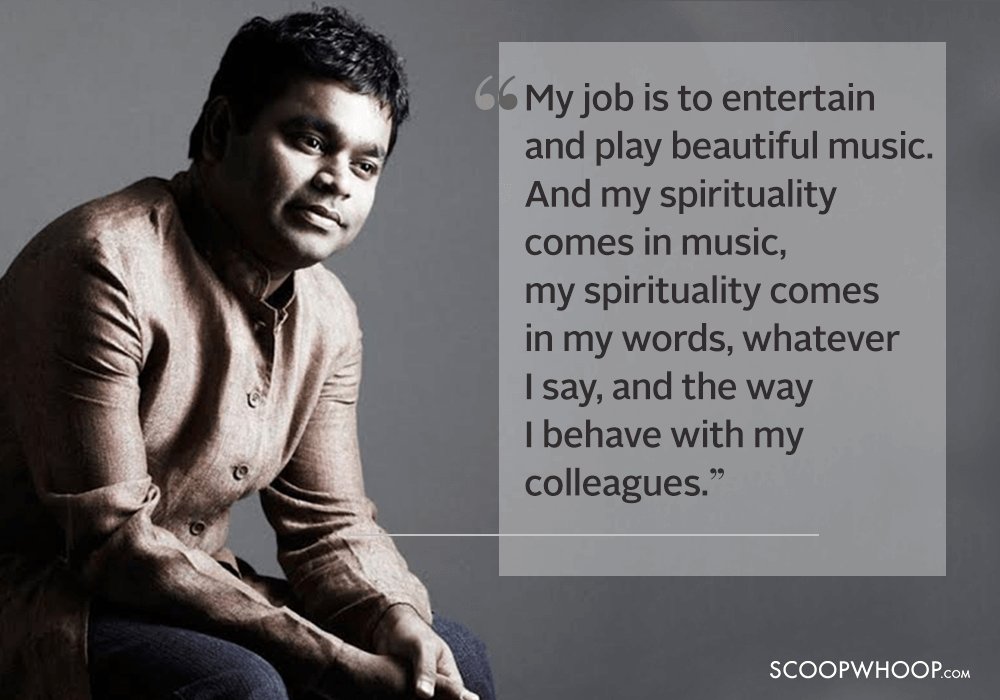
The actions we perform are greater than the way we look or the clothes we wear.
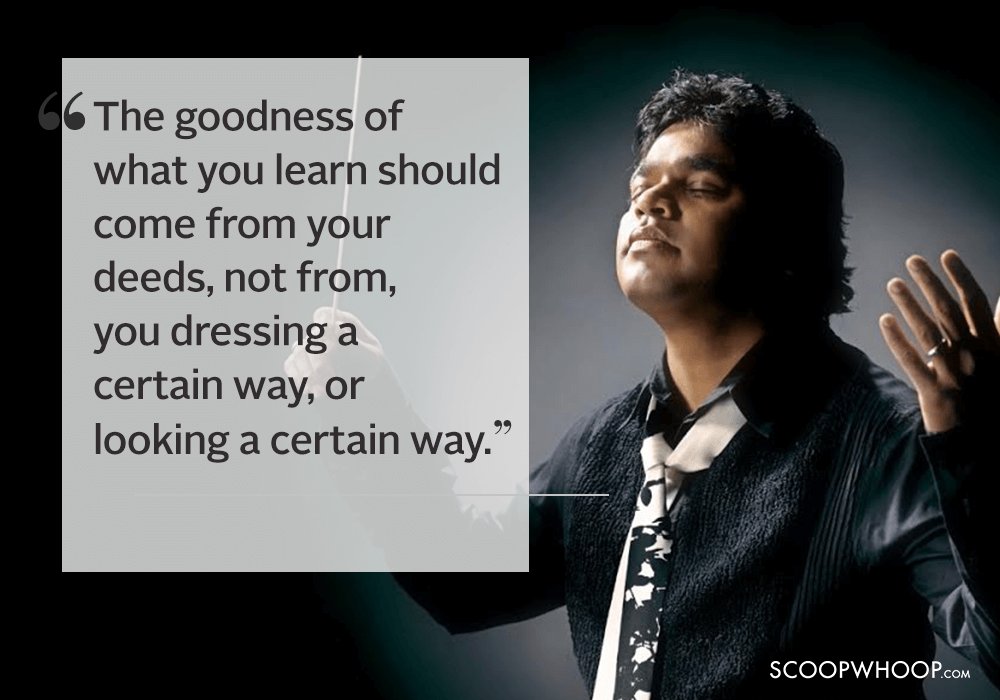
Speaking about good actions, he highlighted how people of all religions are trying to make this world a better place.
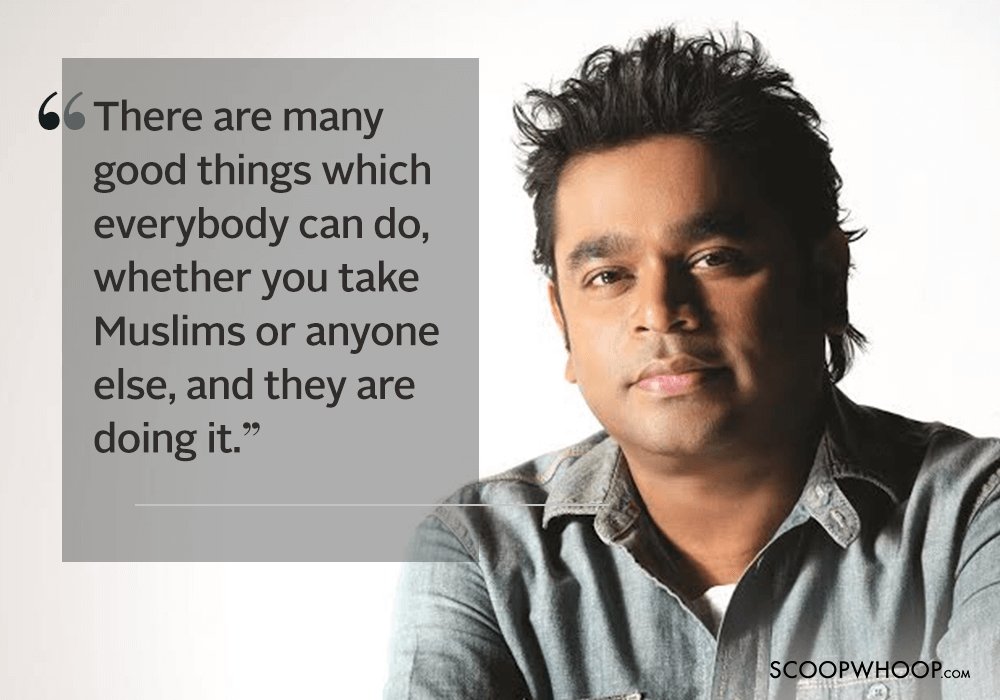
Unfortunately, we live in a world where stereotyping a religion has led us to form notions that aren’t always true. Rahman said that the media shouldn’t filter news as per stereotypes, rather, people should be given all the information to make a decision.
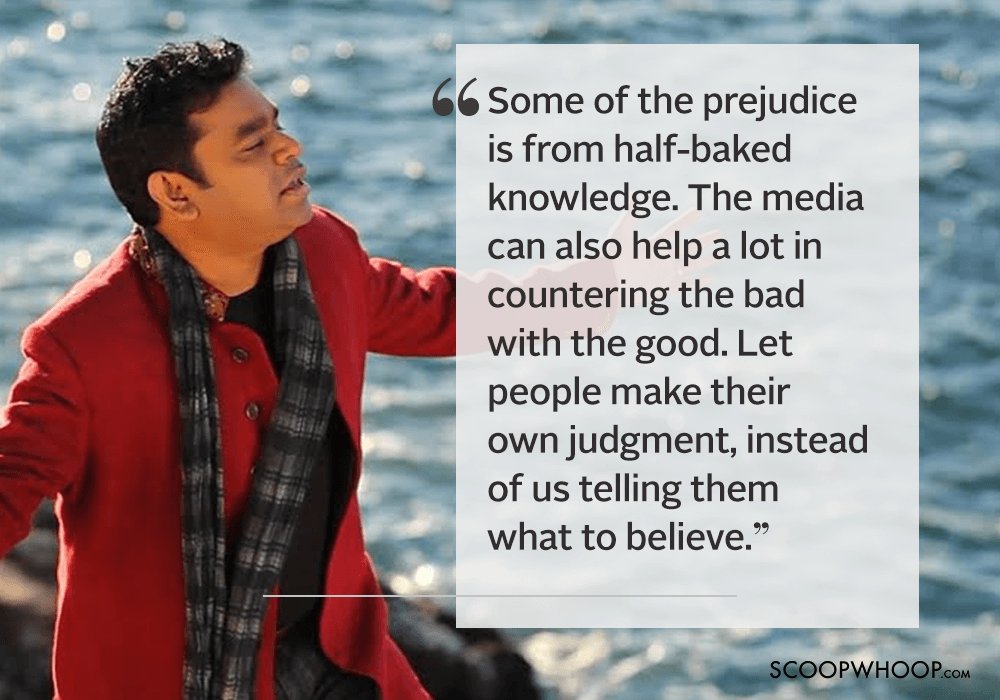
Truly a maestro!
Read the full interview here: Bombay Times
Design credit: Utkarsh Tyagi

















